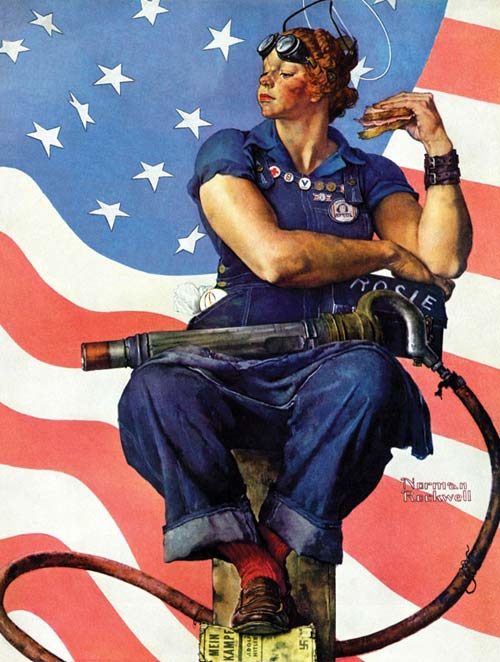She Does Rosie the Riveter Proud!


In this 1943 editorial, an African-American woman describes her struggle to help America’s war effort.
A nurses’ aide in one of the Philadelphia hospitals tells us about one of her patients. The patient is a Negro woman, mother of several children. She is in the hospital recovering from terrible injuries received in an automobile accident on her way to work at a shipyard 20 miles away. She told the nurses’ aide how she got the job at the shipyard, as a welder.
“The foreman didn’t want me. He said I couldn’t learn it anyway. I told him, ‘I’m not after this job to take away any man’s work. I’m trying to work here because you can’t get men. You don’t want women in here, and I would rather do a lot of other things better. But you need people here and I can learn this welding.’ I did learn it too. Before I was hurt I could even read blueprints and follow ’em. Why, that foreman who didn’t want me to work for him came in yesterday to see how I am getting along!”
The nurses’ aide tells us that everybody in the ward hopes this particular welder will recover rapidly, because her one fear is that she will not be out of the hospital in time to see her ship launched. That ship represents an instrument of victory which she helped build after a struggle to get a job, a lot of hard study learning how to do it, and plenty of hard work at the welding itself. Her right arm is so twisted and deformed as a result of the accident that the hospital staff are not so sure this spirited and patriotic Negro woman will do any more welding. But they are going to do their best to see to it that she gets to the water front to see “her” ship go down the ways.
Sometimes we wonder whether expressions like manpower, absenteeism, incentives and essential workers do not get in the way. After all, there are a lot of “rugged individualists” around, pushing their way into war jobs, learning how to do new kinds of work, exhibiting that fine but intangible affection which the true worker feels for the fruits of his labor. This colored woman’s story reminds us that there are phases of the great uprising by American democracy.
—“Some People Defy Statistics,” Editorial, March 20, 1943
This article appears in the March/April 2018 issue of The Saturday Evening Post. Subscribe to the magazine for more art, inspiring stories, fiction, humor, and features from our archives.